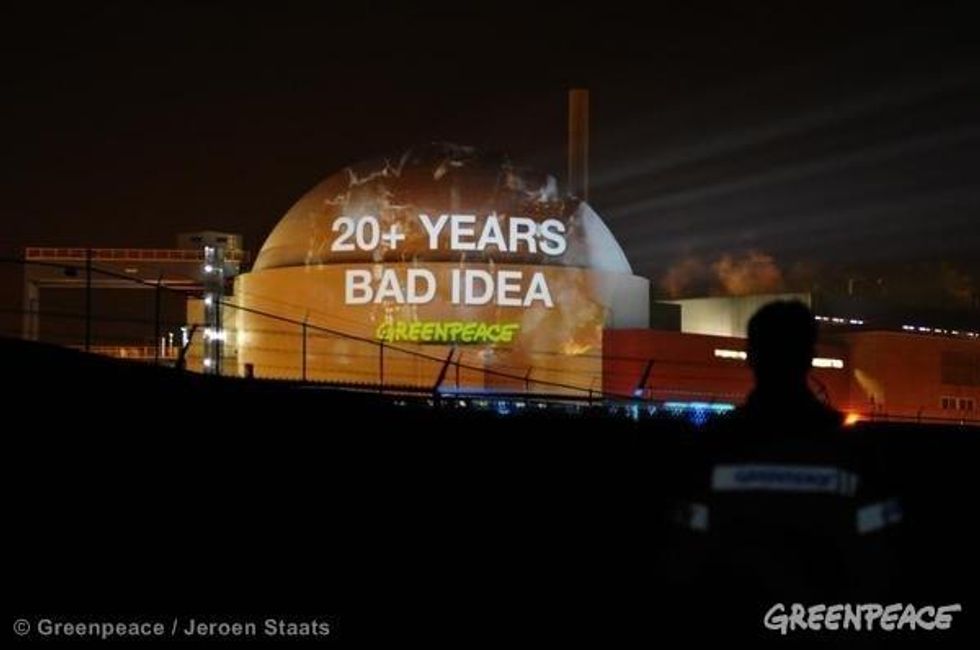Many nuclear power plants in Europe have passed their expiration date and pose a threat to millions of people, yet they continue to be heavily integrated into energy programs across the continent, a new study commissioned by Greenpeace warns.
Most nuclear power plants are built to last roughly 30 years. The average European plant is now reaching that age, and many others have long surpassed it.
"Nearly three years on from the Fukushima nuclear disaster," the report states, of the 151 operational nuclear reactors in Europe (excluding Russia), 66 have exceeded 30 years old, 25 others have surpassed 35 years and seven are older than 40 years.
"Simply put, a vast amount of these reactors have long outlasted their shelf life," writes Isadora Wronski, a nuclear expert at Greenpeace. "And, regardless of upgrades and repairs the overall conditions of reactors will deteriorate over the long term."
Rather than shutting these plants down, many companies are being allowed to rework them in an effort to extend their life another 10-30 years.
Continuing in this direction "would plunge us into a new era of risk," states the report.
Nuclear meltdowns become more likely the older a plant gets. "Based on lessons learned from accidents like Chernobyl and Fukushima, and on scientific and technological progress," the report warns, no amount of retrofitting can truly decrease the risk of malfunctions that are inevitable in aging plants.
"With European nuclear reactors averaging 29 years old, we should be approaching a massive wave of decommissionings," the report states.
Should an accident occur in these aging plants, the report also warns, nuclear companies are largely off the hook for liability. Due to current insurance and liability requirements, as well as liability "caps" given to nuclear companies, a large portion of costs related to future nuclear accidents will rest on governments, leaving less financial incentive for these companies to do everything they can to make sure their plants are safe.
"The whole problem is you're not liable for the full damage ... and as a result of that, plants are able to externalize the damage," said Michael Faure, a professor of international environmental law at Maastricht University and one of the authors of the report. "Because it's the states that would pay, incentives for prevention aren't so great."
If European leaders don't "shed the shackles to their big energy companies," we will be facing "more Fukushimas with our aging nuclear fleet," writes Jan Haverkamp, Greenpeace expert consultant on nuclear energy. "The last thing you want if you face a climate crisis as we do now, is being tied in by a nuclear accident."
Following the release of the report, 240 Greenpeace activists took action across Europe on Wednesday to highlight the risk of these aging nuclear reactors.
Activists dropped banners and projected messages at nuclear sites such as the Tihange reactor in Belgium, the Beznau site in Switzerland, and the Oskarshamn nuclear power plant in Sweden, calling for "the end" to nuclear power.
30 protestors chained themselves to the gates of the Garona nuclear power plant in Spain while workers from the plant sprayed them with water cannons.
See footage of the actions below:
Activists Protest At Europe's Ageing Nuclear Reactorshttps://out-of-age.eu/ 240 Greenpeace activists have taken part in protests to highlight the risks of Europe's ageing nuclear power ...
______________________



